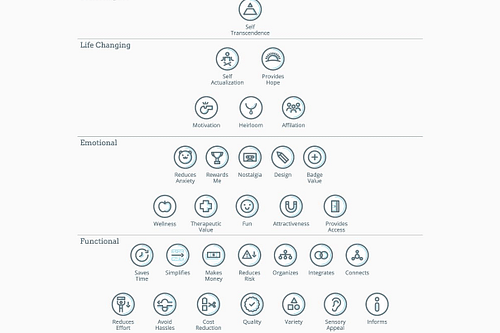“What is a friend? A single soul dwelling in two bodies.” — Aristotle
…Rather than asking for advice about what you should do in life, ask “who do you want to be with?”
“Few things in life shape you more than the people around you, and few choices are more important than deciding who you’ll be with. This is true for all of us, and it’s true for all of our lives. Unfortunately, many people treat this idea as if it had an expiration date: the day you become an adult.”
“You know you’re impressionable, and whether or not we acknowledge it, we are all social animals. Every day we are shaped by the people we spend time with. Be with people who are the way you want to be. If you want to be excellent, be around people who pursue excellence. If you want to be happy, be around people who are happy. If you are around resilient people, you’re far more likely to be resilient yourself.”
“Who you should spend time with is a question for adults, and it has inspired some profound adult thinking. Roman philosopher, Cicero, took friendship seriously: a true friend, he said, is “a second self.” Seneca took friendship seriously in his letters to Lucilius: “Ponder for a long time whether you shall admit a given person to your friendship; but when you have decided to admit him, welcome him with all your heart and soul. Speak as boldly with him as with yourself.” Confucius took friendship seriously. At the very beginning of his collected teachings, we read, “Is it not a joy to have friends come from afar?”
“You could make the case that Aristotle treated friendship as the single most important ingredient for a good life. His book on character and the pursuit of happiness, the Nicomachean Ethics, has ten chapters, each on a separate subject. Only one topic gets two chapters: friendship. No other subject in the book is discussed at greater length.”
“Aristotle viewed friendship as an essential requirement of both happiness and excellence. And as with almost everything he examined, Aristotle tried to break his subject down into manageable and measurable pieces. “He believed that friendship could be based on one of three things: utility, pleasure, or virtue.”
Friendships of Utility
“Friendships of utility bring together people who are useful to each other. Think of business partners, coworkers, teammates. Ideally you treat each other with respect and kindness. Over time, you may grow to like each other. But you’re initially drawn together because you’re useful to one another. Such relationships are part of every human life and can be genuinely valuable. But such friendships can also be fleeting: they are prone to disappear as soon as you stop being mutually useful.”
Friendships of Pleasure
“Then there are friendships of pleasure. There are some people we just like being around. They make us happy. Every person should have friends like these; we have a blast with them. It’s also true that you can enjoy being around such friends for years and then reach a point when you no longer find each other amusing, and the relationship may die.”
Friendships of Virtue
“A friendship based on virtue is different. Aristotle is talking about friends who “enrich one another’s lives, who help one another live their best possible lives.”
“Aristotle points out that your deep and true friends—sometimes he calls them your “perfect” friends—can also be pleasant and useful, but they don’t have to constantly work at it. And neither do you. You aren’t fearful that your true friends will lose interest. With your closest friends, it’s often enough to simply be together. Aristotle argues that such friendships are an end in themselves. It’s not that we pursue them because they will help us to live an excellent life; we make time to create such friendships because they are part of an excellent life. In fact, Aristotle suggests that we can’t live our best lives or become our best selves without these kinds of friendships. The best friends support us, challenge us, inspire us. And we do the same for them. It’s been said that the deepest relationships are formed not when two people are looking at each other, but when two people are looking in the same direction. That’s a very Aristotelian thought.”
“These true friendships are rare. Aristotle said that “it is natural that such friendships should be infrequent… such friendship requires time and familiarity.” This isn’t a shock to anyone who has built a real friendship. A wish for friendship may arise quickly, but friendship does not.”
“We often turn to friends when we make life’s biggest decisions, not because they will support us unquestioningly, but because they will not. It’s easy for an acquaintance to brush off a dumb idea with “Sounds good to me.” It’s irresponsible for a real friend to do that.
“Friends challenge the flaws in our thinking and the flaws in our character. When they do that, they make us better. Good friends hold us to a higher standard when we are ready to make an excuse for ourselves. Friends sympathize with our pain, but they stop us from wallowing in it. Friends point out our blind spots, and they do so not with vindictiveness or cruelty, but out of honesty, love, and a desire that we live the fullest and best life possible.”
“That’s why, in the ancient world, philosophers stressed the importance of distinguishing true friendships from false ones—learning to tell apart the people who appeal to your best self and the people who flatter what’s worst in you. Here’s how Plutarch put it: “A true friend will not rashly commend nor imitate every thing, but only what really deserves it.” On the other hand, “the flatterer claws and tickles the irrational part of the man only.” And remember, this was advice for adults, not children—there’s never a point in your life when friendship ceases to matter. In fact, the older and (hopefully) wiser you get, the more you realize that true friendships aren’t always easy.”
-A series of excerpts, adapted from Resilience by Eric Greitens
Action:
Take a moment to reflect on the friendships you presently have—your friends of utility, your friends of pleasure and your friends of virtue? Are you happy with the quality of social interactions in your life? Are there some friendships you are missing in your life? Have you been a good friend to others? If not, how can you improve? How can you take your friendships to the next level?
If this post made you rethink your approach to living life in any way, please do others a service and SHARE the love.
Let’s Foster Critical Thinking.
Read More @ www.borisgodin.com
Follow us on Facebook @ Exploration of Human Condition




